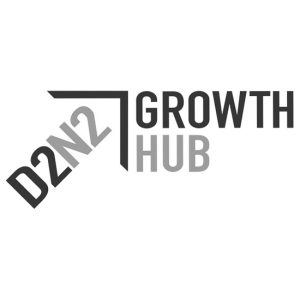Artificial Intelligence (AI) is increasingly driving the transformation of our global supply chains. AI-powered technologies like robotic process automation (RPA), machine learning (ML), and predictive analytics are helping companies automate and optimise their supply chain operations. They are helping supply chain operators to become more efficient and to drive down costs, while making supply chains more resilient and responsive to dynamic business conditions; something that is desperately needed following COVID and Brexit.
We are hugely fortunate in our work to meet with clients in their facilities and love nothing better than to have a company tour. We get to see firsthand how AI is helping to reduce inventory and supply disruptions, by creating more accurate forecasting models, finding new sources of supply, and enabling faster, and more accurate decision-making. Our clients tell us that AI is helping to improve their customer experience end-to-end, by providing a more personalised service and automated recommendations. Many are keen to explore further how the technology can be used to predict and prevent possible supply chain disruptions and outages before they occur.
According to most experts, the US is currently the global leader in AI; it has the most advanced technology and the largest AI-focused companies, including Google, Microsoft, Apple, and Amazon. In fact, Google is said to dominate the field of AI research leading to advances in machine learning and deep learning algorithms. The company’s AI initiatives include DeepMind, Google Brain, Google Cloud AI Platform, Google Research Intelligence, and Google AI. All these initiatives are dedicated to pushing the boundaries of AI technology. The US also has access to the most data and the richest academic and research environment; although China is rapidly catching up and is thought to be on track to overtake the global leader at some point this decade.
But back to the UK, we have one of the most highly developed warehousing, transportation, and manufacturing industries; AI is allowing some companies in these sectors to enhance their operational performance, reduce costs, and improve customer satisfaction. The UK AI sector is responding to this increased demand and has experienced unprecedented growth with AI suppliers adding £3.7bn in value to the UK economy and attracting almost £19bn in private investment through 2022 (UK Govt).
In the logistics sector, AI is helping to optimise warehouse management, distribution networks, and delivery systems; whilst automated machines, robots, and AI-powered warehouse management systems are maximizing efficiency in the warehouse, reducing human errors, and optimising routes, deliveries, and overall performance. Furthermore, by applying cost analytics to process the data gathered from AI-enabled tracking systems, transport companies can improve their procurement, warehousing, and transportation practices. Companies like Echo Global Logistics are using AI to negotiate better shipping and procurement rates, manage carrier contracts, and pinpoint where changes in supply chains could deliver better profits. Whilst DHL uses machine learning algorithms and predictive analytics to help e-retailers optimise route selection and staff allocation; the company also uses skills graphs enabled with natural language processing to match needed skills to people, learning content, and job roles.
In the manufacturing sector, AI is being used to streamline production processes; predictive analytics and optimisation algorithms are helping companies to better forecast maintenance and service needs in advance, improving production processes and reducing downtime. AI technologies such as computer vision, image recognition, and natural language processing are being used to monitor and manage quality control. Well known brands like Siemens, GE, and IBM are combining human know-how and artificial intelligence, data-driven technology to eradicate inefficiencies, faulty products, and costly machine maintenance, an approach being coined as the fourth manufacturing revolution i.e. Industry 4.0.
As we look into the future, there is no doubt that the pace at which AI is evolving is exponential and this will continue; it is anticipated that global GDP will be up to 14% higher in 2030 as a result of the accelerating development and adoption of AI. As for the UK, for it to sustain its position as a global AI leader and meet the needs of UK companies across all sectors, it needs a strong ecosystem. It also needs investment and planning for the long-term, and a pro-innovation regulatory and governance framework that protects technology provides, businesses, and the public.






















